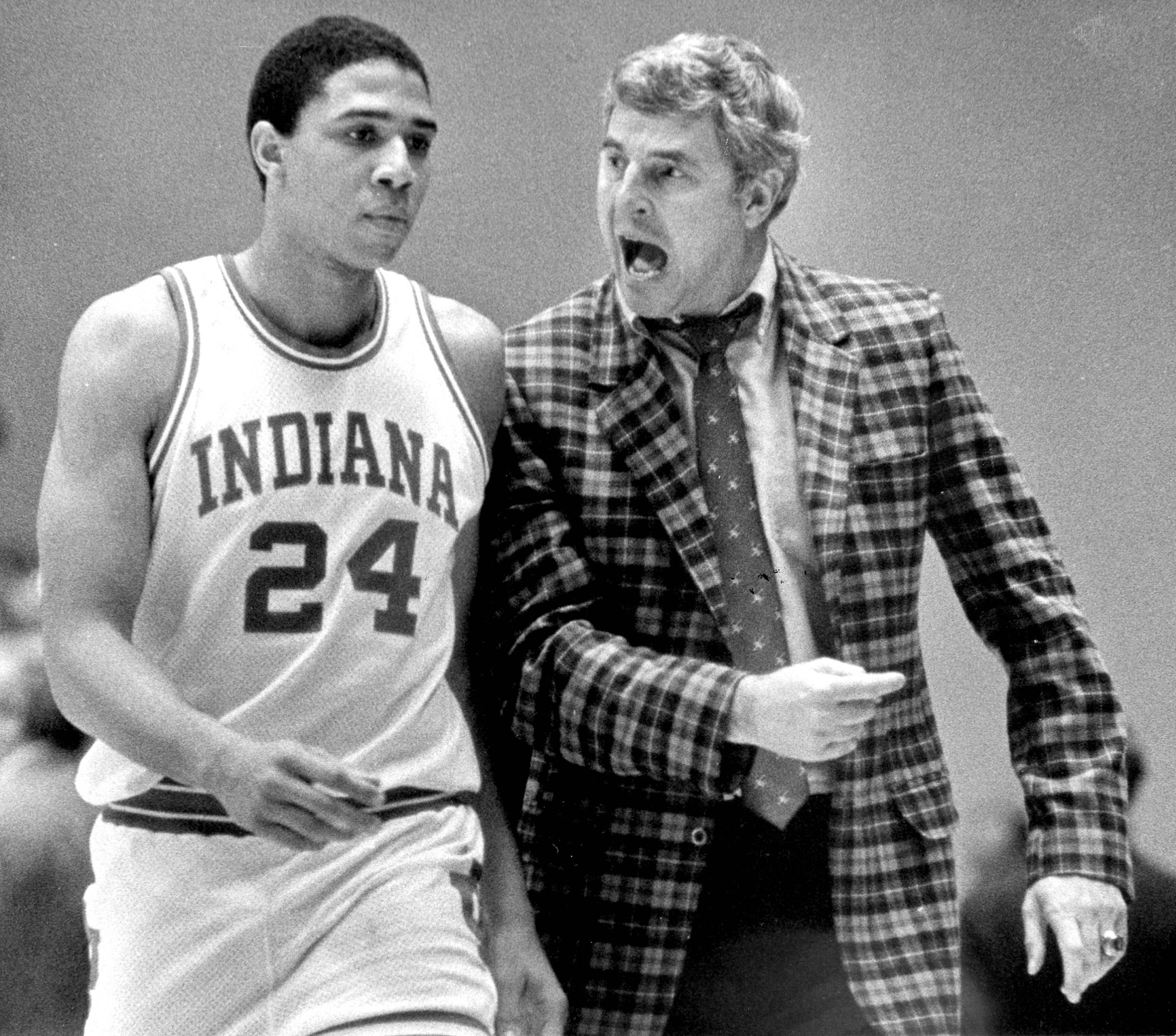
Revered and despised, Knight lived on a brink
Bob Knight was a genius-level coach from a bygone era, an unrepentant hypocrite who could dish abusive behavior and not did not have the emotional bandwidth for anything he perceived as a sleight.
He saw himself as Patton on a basketball court; amid enabling fans, fearful administrators, combined with wealth and fame, he lost sight of the fact he was but a basketball coach who preached rules that would not follow.
The former basketball coach at Indiana and Texas Tech died on Wednesday. He had been briefly hospitalized in early April with an undisclosed illness, and was released. He was 83.
Friends close to Knight said he had struggled with dementia for the past several years.
He was the best, and worst, of sports.
After a six-year tenure at Army, Indiana University hired Knight in 1971. In Bloomington, Bob Knight made Indiana Hoosiers basketball nationally relevant. He gave a state an identity, and bravado when previously it was thought of as a cornfield with a racetrack.
From 1971 to 2000, Indiana and Bob Knight were synonymous. His teams had a look, and Indiana basketball was known for playing the game “the right way” for its old school coach.
Knight’s Hoosiers won NCAA titles in 1976, 1981 and 1987. The ’76 team is the last major college team to go undefeated, 32-0.
Knight coached the U.S. Olympic team to a gold medal in the 1984 Olympics.
Knight was a national celebrity, and he fell in love with being Bob Knight, especially the adulation, money, and power that came with it.
He routinely boasted of his program’s high graduation rate, and the fact that it never ran afoul of the NCAA, an organization he often blasted.
Indiana reached the Final Four in 1992, the last major high point for the Hoosiers under Knight. He then slowly turned into the man he once so revered, Ohio State football coach Woody Hayes.
As other teams caught, and surpassed, Indiana administrators could no longer justify dealing with a relentless belittling bully who routinely berated staffers, office assistants, players, members of the media or anyone in his line of sight on the wrong day.
His temper was that of an angry teen, and inexcusable for a man who led young men.
During the 1979 Pan Am games in Puerto Rico, Knight punched a police officer after he was ejected from a game. The Puerto Rican government had an arrest warrant for Knight, but he could not be extradited from the U.S.
He threw a chair across the floor during a game against Purdue in 1985. He routinely berated game officials.
In April of 1988, he told NBC reporter Connie Chung, “I think that if rape is inevitable, relax and enjoy it.” Knight did not condone rape, but his analogy was deplorable.
Bob Knight was not one for apologies. If there was a mistake, it was yours.
This much was fleshed out in the best-selling book, “A Season on the Brink,” written by John Feinstein, who spent a year embedded with IU basketball.
The tell-all showed many of the details that his fawning fans admired; Knight won basketball games, which justified the sometimes ugly means.
In September of 2000, Indiana had had enough. The Hoosiers had been surpassed by other teams, namely rival Kentucky, and they were a program known only for Knight’s tiresome temper.
Former IU guard Neil Reed went public with an accusation that he been abused mentally and physically by Knight. A grainy video showed Knight choking guard Reed during a practice, and that was basically it.
The reality was Knight treated a lot of players like this; the difference was he was coaching a generation of young men who were done putting up with it.
Texas Tech hired Knight in 2001, and he coached the Red Raiders to four NCAA tournament appearances, including the 2005 Sweet 16.
In Jan. of 2007, he reached career win No. 880 to break former North Carolina coach Dean Smith’s record.
In February 2008, Bob Knight quit.
For 20 years he maintained his disdain for Indiana University, and specifically those responsible for his dismissal. He sounded like a bitter old man. Because he was.
With his health was eroding, Knight moved back to Bloomington. After years of former players and staffers begging him to return to Assembly Hall for an IU game, Knight finally agreed.
On Feb. 8, 2020, surrounded by former players such as Isiah Thomas, Quinn Buckner, Kent Benson, Randy Wittman and 45 others, Knight walked onto the floor at Assembly Hall during halftime of a IU’s game against Purdue.
For a kid who grew up in Indiana, loved IU basketball, and revered Knight but as an adult deplored this rude, tone-deaf jerk, it was impossible not to be choked up.
Other than an annual car race, Knight made an entire state that was on a map in name only matter. Even if you hated him, which a lot of people did, you had to respect him on some level.
The Bob Knight who walked onto that floor needed help sitting in a chair, forget throwing one. This was a frail old man who was sporadically “there.”
He was finally back home, again in Indiana, and no one cared any more about anything other than that.
Now, Bob Knight has reached his end.
His legacy is confounding. You despised the man, and yet it was hard not to respect a coach for what he did for a school, for so many young men, and an entire state.
Simply put, Bob Knight was the best, and worst, of sports.
